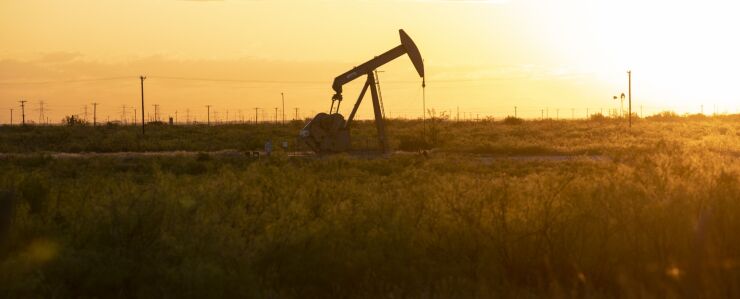Manufacturing activity in Texas continued to take hits from the effects of efforts to contain the COVID-19 pandemic, the April survey from the Federal Reserve Bank of Dallas showed.
The production index, a key measure of the
The Dallas Fed said other measures of manufacturing activity also worsened, with the new orders index falling 26 points to negative 67.0, the lowest reading since the survey began in 2004.
The growth rate of orders index fell to negative 62.2 while the capacity utilization and shipments indexes dropped to negative 54.5 and negative 56.6, respectively. The capital expenditures index declined 20 points to negative 54.3. Each of the readings represented a new low.

Perceptions of broader business conditions remained very pessimistic in April, according to the business executives responding to the survey.
The general business activity index in April slipped to negative 73.7 from negative 70.0 in March, also hitting a new low. The company outlook index remained near its all-time low, narrowing to negative 62.6 from negative 65.6.
The Dallas Fed said labor market measures indicate further employment declines and shorter workweeks can be expected.
While the employment index held steady at negative 21.2, 3% of the firms polled reported net hiring and 24% net layoffs. The hours worked index dropped 18 points to negative 40.2, signaling a notably reduced workweek. The wages and benefits index dipped into negative territory for the first time since the Great Recession, coming in at negative 2.7.
"Current production is off 40%," said one respondent. "We are holding all employees due to PPP [Paycheck Protection Program]. We expect the third and fourth quarters to rebound to where we’re only off 20% for the year. It’s not a good year ahead."
Prices also declined this month. The raw materials prices index posted a second negative reading in a row while the finished goods prices index dropped. Both price indexes reached lows last seen in mid-2009.
“We took steps early to get out in front of the economic impact of fighting the COVID pandemic,” said one survey respondent. “We are currently executing on that plan but still see us getting back to more like our original forecast in six months.”
Expectations regarding future business conditions remained negative in April.
The indexes of future general business activity and future company outlook remained in the red at negative 42.1 and negative 41.5, respectively.
The Dallas Fed asked Texas business executives several supplemental questions on the impacts of the coronavirus.
When asked how COVID-19 had impacted the numbers of employees at the firm, 48.4% of business executives said it had no effect, 47.4% said it had a negative effect and 4.2% said it had a positive effect.
Of those who said it had a negative effect on employment, 75.1% said it was temporary and 24.9% said it would be permanent. Of those who said it had a positive effect, 58.3% said it was temporary and 41.7% said it would be permanent.
Looking ahead, 41.7% of the executives said they expected to rehire the same number of employees, 34.8% said they project a slightly reduced headcount, 8.3% see a significantly reduced employee headcount and 15.2% were uncertain.
"With 22 million new unemployment claims in the last four weeks and others underemployed, there will be a decline in construction/housing demand that will cause job losses not seen today," another Texas respondent said. "It is unknown for how long or how deep. Texas will fare better than the U.S., but the impact will be seen here."
Texas has about $22.9 billion in tax-exempt debt and $5.1 billion in taxable debt outstanding. The state’s Permanent School Fund guarantees $93.7 billion in tax-exempt debt and $4.2 billion in taxable debt.
The state’s bonds are rated triple-A by Moody’s Investors Service, S&P Global Ratings, Fitch Ratings and Kroll Bond Rating Agency.





